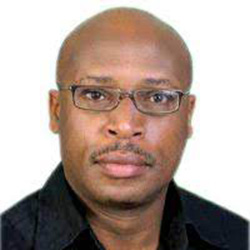The digital economy is well on its way to being fully fledged with the activities we have been witnessing to cultivate the requisite skills-set. Recent examples in the country and regionally offer a lot of optimism, including with the multi-sectored approach being adopted continent-wide.

The digital economy is well on its way to being fully fledged with the activities we have been witnessing to cultivate the requisite skills-set. Recent examples in the country and regionally offer a lot of optimism, including with the multi-sectored approach being adopted continent-wide.
The chief executive officer of the AU’s New Partnership for Africa’s Development Agency (NEPAD) was quoted in an interview featured in this newspaper last week detailing a recently released strategy to match skills to existing and emerging employment opportunities (see "New Africa-wide initiative will create jobs”).
The wide-ranging interview also touched on NEPAD’s Programme for Infrastructure Development in Africa (PIDA) comprising of cross-border projects in four main infrastructure sectors, namely energy, transport, trans-boundary water and ICT.
However, in its technological primacy, ICT arguably stands out in the multi-sectored approach. It is a matter of functionality in the digital economy that ICT is the common denominator permeating most sectors of the economy, including agriculture. With current innovative developments, ICT underpins optimum infrastructural utilisation by digitally enhancing their potential. This is not in dispute.
Of more immediate interest, therefore, is how innovatively prepared we are to augment existing capacity, even as well as we seek to exploit the emerging opportunities.
Recent analyses such as the Global Innovation Index (GII), now in its tenth edition, have been shedding much-needed light on which to pace our progress.
Themed "Innovation Feeding the World”, the 2017 GII, for example, reported favourably on countries in East Africa singling out Kenya, Rwanda and Uganda for their support to innovation in the agricultural sector.
In Rwanda, for example, this may be borne out by such as the recent boot camp on robotics for top performing science students by mentors from the highly regarded Massachusetts Institute of Technology. The camp gave the students some hands-on experience on robotics application in agriculture.
It is not a coincidence that also in the news was the announcement at a workshop in Kigali of 45 local technology innovators and data scientists having been selected for the planned second edition of DataHack for Financial Inclusion (DataHack4Fi) competition.
These demonstrate a trend of which Rwanda is representative of the EAC and continent, particularly if one appreciates that more focus will be directed to the region at the DataHack4Fi whose finals will bring together 6 countries.
Add to this the second edition of the Next Einstein Forum (NEF) Global Gathering 2018 planned for next month in Kigali. The biennial conference, an initiative of the African Institute for Mathematical Sciences (AIMS), showcases emerging science, innovation and technology breakthroughs from the continent.
The GII survey laments how the new wave of technological advances is rolling out rather slowly in many parts of the world, with Sub-Saharan Africa yet to benefit from earlier waves of agricultural innovations.
This is not to say the prognosis for the continent is all bad. The GII report cites a total of 17 economies composing the cluster of "innovation achievers” for the year 2017, and how nine of these come from the Sub- Saharan Africa.
It observes how "particularly notable is the consistent progress, with some new economies, such as Tanzania and Burundi, joining this group [in the period under review]. Importantly, Kenya, Rwanda, Senegal, Uganda, Mozambique, and Malawi stand out for being innovation achievers at least five times in the previous six years.”
Clearly, the EAC is shining through. Continentally, however, the Next Einstein Forum (NEF) will be apt in bringing to light what more has been happening to plug the existing gaps, not only in innovative capacity but in uptake.
In the Dakar Declaration during the 2016 Gathering, the NEF offers a sense of what needs to be done with the commitment to increase investment in Science and Technology to reach 0.7 per cent of GDP by 2020, and at least by 1 per cent by 2025.
Also, focusing on women and youth, it recognizes "that there must be more STEM graduates in Africa at the tertiary level and we commit to prioritizing STEM education in Africa at the tertiary level, leading to an enlarged community of STEM graduates across Africa targeting a doubling by 2025.”
This year, under the theme "Connecting Science to Humanity”, the Gathering will focus on four cluster areas, namely, Connectivity, Ubiquity and Mobility; Precision Health; Climate, Energy, Food and Growth; and building Africa’s Scientific Capacity.
Twitter: @gituram
The views expressed in this article are of the author and do not necessarily represent those of The New Times.


